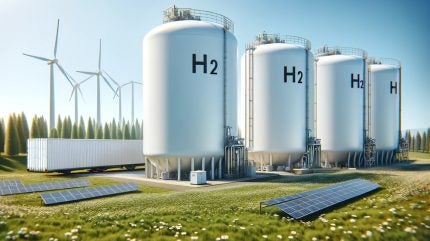
Gas grid operator Enagas has received provisional approval from the Spanish Government to begin developing the Spanish section of a trans-European hydrogen pipeline and related hydrogen infrastructure projects.
The H2med hydrogen pipeline project, a collaboration among Spain, France, Germany and Portugal, includes interconnection with Portugal, an underwater pipeline between Spain and France, and other hydrogen storage facilities.
Enagas will collaborate with other operators from these countries, including GRTgaz, Terega, OGE and REN.
The company highlighted that the expected total cost of Spain’s planned hydrogen portfolio is €4.9bn ($5.31bn) while the H2med project needs €2.5bn of net investment through 2030, €1bn of which Spain has agreed to invest.
The Spanish Government has a 5% stake in Enagas.
The project could be eligible for accelerated permitting and access to additional funds through the Connecting Europe Facility for Energy (CEF-E), after the plans for the Spanish hydrogen pipeline and the H2med project were listed in the European Commission’s sixth list of Projects of Common Interest.
This list highlights key energy infrastructure projects from two or more EU member states that are eligible for CEF-E funding.
Enagas has already stated it will apply for subsides via the CEF-E to help fund the project.
On Monday (29 July), the European Commission approved a €1.2bn Spanish scheme to bolster investments in the production of renewable hydrogen-derived fuels, storage solutions and the generation of renewable electricity.
The quest for cheaper forms of renewable energy generation is fundamental to a successful energy transition, and hydrogen is expected to be among the cheapest options in Europe. According to the International Energy Agency, the levelised cost of hydrogen production in 2019 was between $3.2 and $7.7 per kilogram (kg) and is expected to fall to between $1.3/kg and $3.3/kg by 2050.



